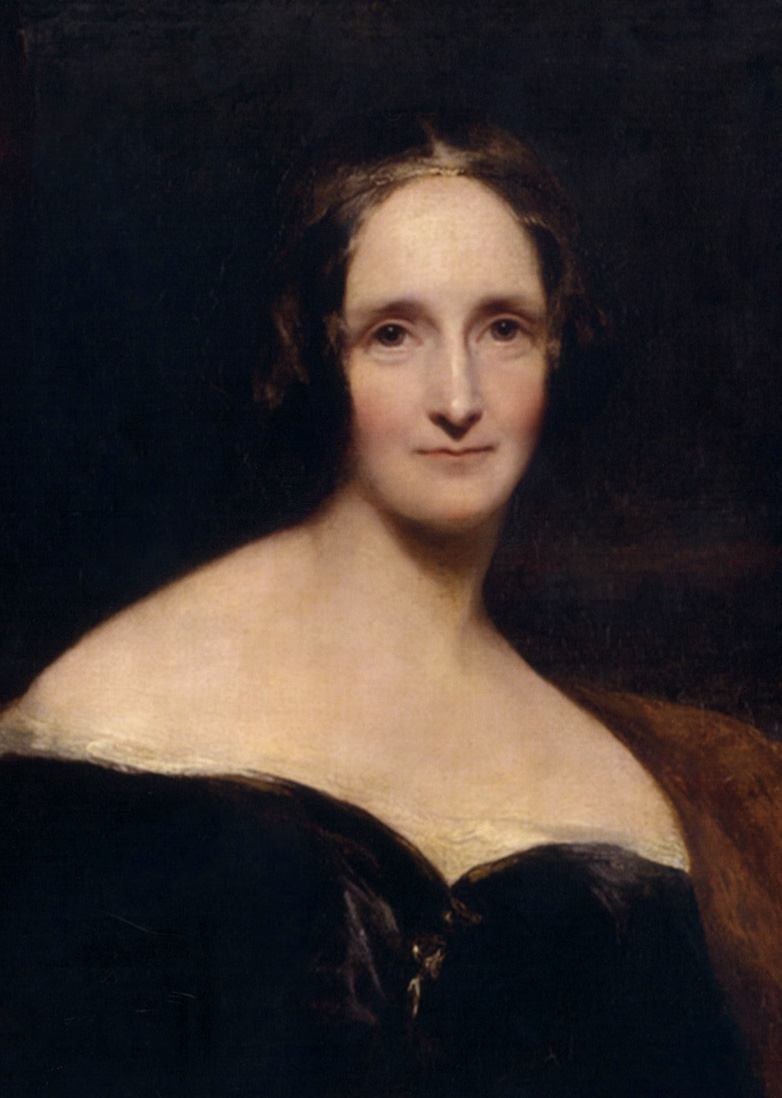Frases célebres de Mary Shelley
Frankenstein
Frankenstein
Frankenstein
Frases de hombres de Mary Shelley
Frankenstein
Frankenstein
Mary Shelley Frases y Citas
Frankenstein
Frankenstein
Variante: Nada contribuye tanto a serenar la mente como una finalidad permanente, un punto en el cual el alma pueda fijar su atención.
Frankenstein
Frankenstein
Frankenstein
Frankenstein
Mary Shelley: Frases en inglés
Introduction http://www.rc.umd.edu/editions/frankenstein/1831v1/intro.html to the 1831 edition of Frankenstein
“When falsehood can look so like the truth, who can assure themselves of certain happiness?”
Fuente: Frankenstein
“Man," I cried, "how ignorant art thou in thy pride of wisdom!”
Fuente: Frankenstein
“I was benevolent and good; misery made me a fiend. Make me happy, and I shall again be virtuous.”
Fuente: Frankenstein
The monster to Robert Walton
Fuente: Frankenstein (1818)
Contexto: I was nourished with high thoughts of honour and devotion. But now crime has degraded me beneath the meanest animal. No guilt, no mischief, no malignity, no misery, can be found comparable to mine. When I run over the frightful catalogue of my sins, I cannot believe that I am the same creature whose thoughts were once filled with sublime and transcendent visions of the beauty and the majesty of goodness. But it is even so; the fallen angel becomes a malignant devil. Yet even that enemy of God and man had friends and associates in his desolation; I am alone.
Contexto: I seek not a fellow feeling in my misery. No sympathy may I ever find. When I first sought it, it was the love of virtue, the feelings of happiness and affection with which my whole being overflowed, that I wished to be participated. But now that virtue has become to me a shadow, and that happiness and affection are turned into bitter and loathing despair, in what should I seek for sympathy? I am content to suffer alone while my sufferings shall endure; when I die, I am well satisfied that abhorrence and opprobrium should load my memory. Once my fancy was soothed with dreams of virtue, of fame, and of enjoyment. Once I falsely hoped to meet with beings who, pardoning my outward form, would love me for the excellent qualities which I was capable of unfolding. I was nourished with high thoughts of honour and devotion. But now crime has degraded me beneath the meanest animal. No guilt, no mischief, no malignity, no misery, can be found comparable to mine. When I run over the frightful catalogue of my sins, I cannot believe that I am the same creature whose thoughts were once filled with sublime and transcendent visions of the beauty and the majesty of goodness. But it is even so; the fallen angel becomes a malignant devil. Yet even that enemy of God and man had friends and associates in his desolation; I am alone.
Introduction http://www.rc.umd.edu/editions/frankenstein/1831v1/intro.html to the 1831 edition of Frankenstein
“The world was to me a secret which I desired to devine.”
Fuente: Frankenstein
Variante: There is love in me the likes of which you've never seen. There is rage in me the likes of which should never escape. If I am not satisfied int he one, I will indulge the other.
Fuente: Frankenstein
“You are my creator, but I am your master; Obey!”
Fuente: Frankenstein
“My education was neglected, yet I was passionately fond of reading.”
Fuente: Frankenstein; Or, the Modern Prometheus
“I am malicious because I am miserable”
Fuente: Frankenstein
